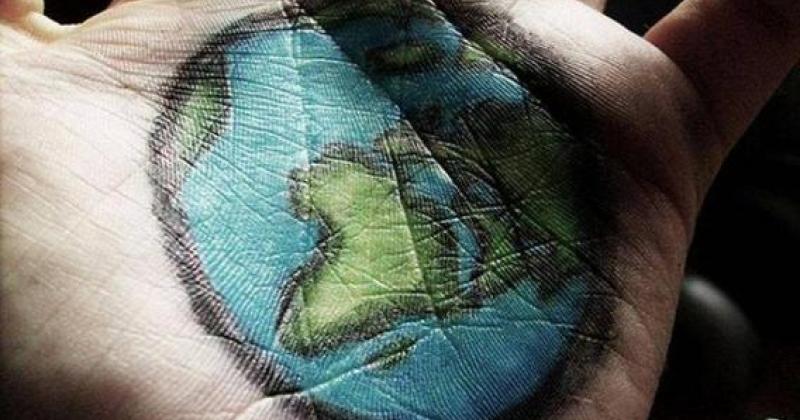Message to the international meeting for the implementation of the Paris Agreement abandoned by the United States: avoid denial, combat climate-change.
"In defining the guidelines that will lead to the application of the "historic Paris Agreement" (Cop21) on the climate, it is necessary to maintain a high level of international cooperation": Pope Francis, who with the pro-environment encyclical Laudato Si' and with numerous public appeals has strongly supported that passage supported by the United Nations, which is now criticized by the President of the United States Donald Trump. In a message to the UN Convention on climate change involving the countries participating in the agreement, the Pontiff asked that "some of them must endeavour to take a leading role in this transition" towards a new model of economic development and urged the joint effort to "combat the phenomenon of climate change".
“Nearly two years ago, the international community gathered within this UNFCCC forum, with most of its highest government representatives, and after a long and complex debate arrived at the adoption of the historic Paris Agreement.” The Pope writes in a letter sent to the Prime Minister of the Fiji Islands, Frank Bainimarama, as president of the 23rd session of the UN Convention on climate change (Cop23) taking place in Bonn, Germany on 6-17 November. “It saw the achievement of consensus on the need to launch a shared strategy to counteract one of the most worrying phenomena our humanity is experiencing: climate change.”
“The will to follow this consensus was highlighted by the speed with which the Paris Agreement entered into force, less than a year after its adoption. The Agreement indicates a clear path of transition to a low- or zero-carbon model of economic development, encouraging solidarity and leveraging the strong links between combating climate change and poverty. This transition is further solicited by the climatic urgency that requires greater commitment from the countries, some of which - Jorge Mario Bergoglio points out - must endeavour to take a leading role in this transition, bearing in mind the needs of the most vulnerable populations. These days you are gathered in Bonn to carry out another important phase of the Paris Agreement: the process of defining and constructing guidelines, rules and institutional mechanisms so that it may be truly effective and capable of contributing to the achievement of the complex objectives it proposes. In such a path, it is necessary to maintain a high level of cooperation.”
Citing Laudato Si', the Pope reiterated his "urgent call to renew dialogue on how we are building the future of the planet. We need an exchange that unites us all, because the environmental challenge we are experiencing, and its human roots, regards us all, and affects us all. Unfortunately, many efforts to seek concrete solutions to the environmental crisis are often frustrated for various reasons ranging from denial of the problem to indifference, comfortable resignation, or blind trust in technical solutions". For Francis, "We should avoid falling into the trap of these four perverse attitudes, which certainly do not help honest research or sincere and productive dialogue on building the future of our planet: denial, indifference, resignation and trust in inadequate solutions".
The Pope stressed, then, that "we cannot limit ourselves only to the economic and technological dimension: technical solutions are necessary but not sufficient; it is essential and desirable to carefully consider the ethical and social impacts and impacts of the new paradigm of development and progress in the short, medium and long term". From this perspective, "it is increasingly necessary to pay attention to education and lifestyles based on an integral ecology, capable of taking on a vision of honest research and open dialogue where the various dimensions of the Paris Agreement are intertwined".
The Pontiff then cited the message he had written to Cop22, which recalls the "grave ethical and moral responsibility to act without delay, in a manner as free as possible from political and economic pressures, setting aside particular interests and behaviour.” This means, in effect, "propagating a “responsible awareness” towards our common home through the contribution of all, in explaining the different forms of action and partnership between the various stakeholders, some of whom do not lack to highlight the ingenuity of the human being in favour of the common good.”
Pope Francis concludes by hoping that the work of these days in Bonn "will be inspired by the same collaborative and prophetic spirit manifested during the Paris Summit, and that this spirit “will enable an acceleration of awareness-raising and consolidate the will to make effective decisions to counteract the phenomenon of climate change while at the same time fighting poverty and promoting true human development as a whole".
